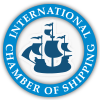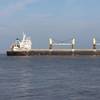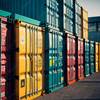ICS Questions French CO2 Ship Requirements
The International Chamber of Shipping (ICS), the global trade association for shipowners, has written to the French Government to raise concerns about a new requirement for foreign shipowners to provide information to their French customers about CO2 emissions, using a detailed methodology that has not been discussed internationally.
ICS believes that the unilateral application by France of these new CO2 reporting requirements to foreign ships cuts across the principles of global regulatory uniformity and the primacy of IMO as the regulator of international shipping.
The new and very detailed rules that have been added to the French Transport Code apply across all transport modes, although the Director General for Maritime Transport is responsible for their enforcement in the maritime sector.
ICS has therefore suggested that the Director General for Maritime Transport should advise that these requirements will not be enforced on international shipping pending the outcome of discussions on the monitoring and reporting of fuel consumption and CO2 emissions currently taking place at the International Maritime Organization (IMO).
The IMO Marine Environment Protection Committee is now in the process of developing global regulations for the mandatory monitoring and reporting of fuel consumption and CO2 emissions by ships trading internationally. ICS fully supports the development of these measures at IMO and wishes to avoid any impediment to their adoption for global application.
Simon Bennett, ICS Director External Relations, explained, “We anticipate that the methodology for reporting that will be agreed by IMO Member States through amendments to the MARPOL Convention will be very different to the methodology specified by the new French requirements. The IMO requirements should also be tailored to the special characteristics of international shipping, and will be the product of international consensus. The immediate implementation of these French regulations is a real concern because shipping is a global industry requiring adherence by governments to a uniform global regulatory framework if it is to operate efficiently.”
ICS has reminded France of the difficulties that would be created if other coastal states were to implement their own unilateral requirements for the reporting of CO2 emissions by ships.
Mr. Bennett added, “The global maritime transport system would be very challenged indeed by the administrative burden of providing information that required the use of different methodologies and national formats for reporting given that cargo ships can call at a very large number of countries during the course of a year.”
Shipping companies are still trying to understand the detail of the new CO2 reporting requirements, the English translation of which has only recently come to the attention of the global shipping industry. But serious concerns are already being raised by international companies about the validity of the methodologies that have been developed by France, as set out in the ‘Methodological Guide for Transport Services’ produced by the Ministry of Ecology, Sustainable Development and Energy.
The development of a global system for the monitoring and reporting of CO2 emissions from ships will be considered by the next meeting of the IMO Marine Environment Protection Committee in March 2014. It is also the subject of a draft EU Regulation proposed by the European Commission.
Article L. 1431-3 of the French Transport Code came into effect for foreign shipping companies in October.














